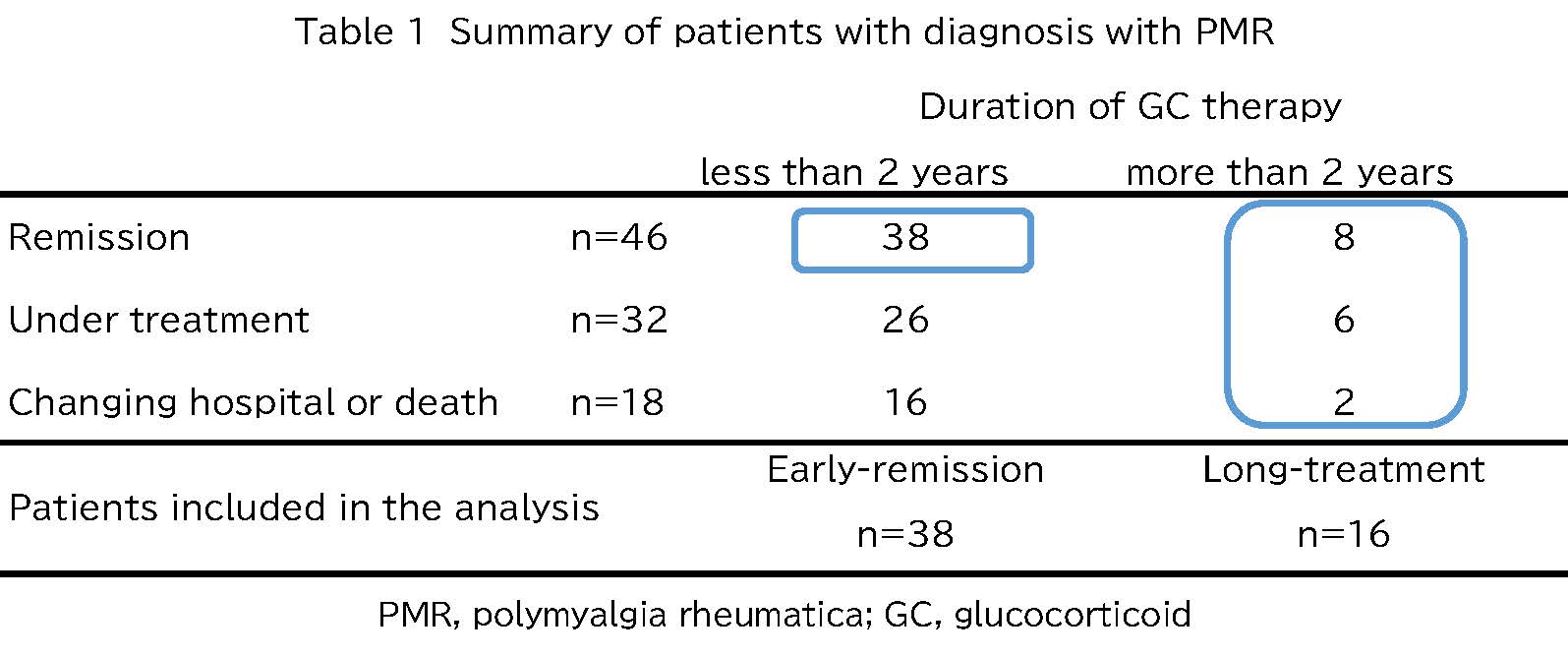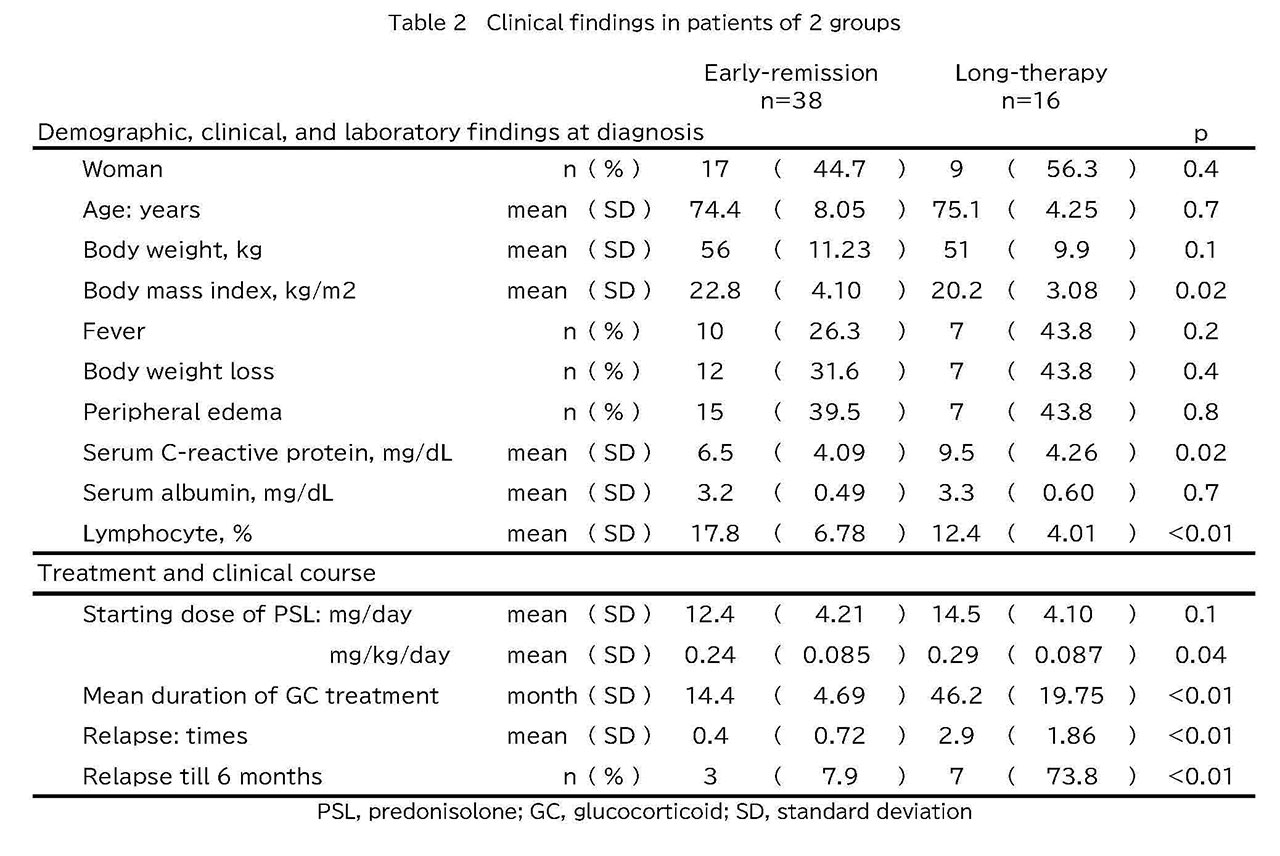Session Information
Session Type: Poster Session (Sunday)
Session Time: 9:00AM-11:00AM
Background/Purpose: Clinical symptoms of polymyalgia rheumatica (PMR) are improved by low-dose glucocorticoids (GC), but relapses and long-term GC therapy are common. 2015 EULAR/ACR recommendations suggest early introduction of methotrexate (MTX) in addition to GC, particularly in patients at a high risk for relapse and/or prolonged therapy. However, risk factors for prolonged therapy are not clear yet. We investigated predictive factors which corresponded to the long-term GC therapy.
Methods: This was a retrospective study in a single general hospital in Japan. We reviewed the medical records of 96 Japanese patients with PMR between April 2011 and May 2019. Diagnosis of PMR was based on Bird’s criteria or 2012 EULAR/ACR Classification Criteria. All patients were treated with prednisolone (PSL) according to the BSR and BHPR guidelines. Patients treated with MTX and accompanied by the giant cell arteritis were excluded from this study. Relapse was defined as the reappearance of symptoms associated with elevated C-reactive protein (CRP) levels in patients receiving GC. Remission was defined as the absence of clinical symptoms and normal CRP with discontinuation of GC. We compared the clinical findings, laboratory data at baseline and clinical course between those who achieved remission within 2 years (early-remission group; n=38) and those who required GC therapy for more than 2 years (long-therapy group; n=16). Comparisons between groups was made using Student’s t-test and chi-square test (IBM SSPE statistics version 25).
Results: 54/96 (56%) were women. The mean age at diagnosis was 75 (SD 16.0). As of May 2019, 46 patients have achieved a remission, 32 were undergoing treatment, and 18 have transferred to other hospitals or died (Table 1). The median duration of GC therapy of patients who have achieved remission was 18.5 months. Remission was achieved in 16% (11/69) after one-year GC therapy, and 70% (38/54) after two-year GC therapy. There were no differences in sex, age, and or clinical features at diagnosis. Body-mass index and lymphocyte% were lower, and CRP was significantly higher in the long-therapy group (Table 2). Multivariate logistic regression analysis showed that history of relapse till 6 months was a significant predictor of long-term GC therapy (odds ratio, 9.07; 95%CI 1.949-42.248).
Conclusion: According to GCs therapy guidelines, the remission rate in our hospital is not low. However, some patients need the long-term therapy for more than 2 years. We might consider additional MTX therapy in patients who experience a relapse during the first six months.
To cite this abstract in AMA style:
Aoki A, Kobayashi H, Oka H. Predictors of Long-term Therapy with Glucocorticoid in Polymyalgia Rheumatica [abstract]. Arthritis Rheumatol. 2019; 71 (suppl 10). https://acrabstracts.org/abstract/predictors-of-long-term-therapy-with-glucocorticoid-in-polymyalgia-rheumatica/. Accessed .« Back to 2019 ACR/ARP Annual Meeting
ACR Meeting Abstracts - https://acrabstracts.org/abstract/predictors-of-long-term-therapy-with-glucocorticoid-in-polymyalgia-rheumatica/


